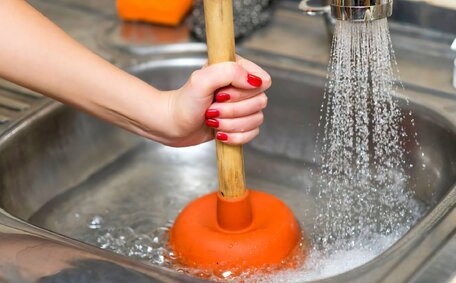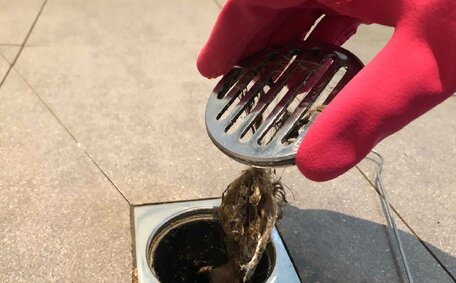Understanding Scaling in Hot Water Systems
Scaling is the accumulation of mineral deposits from hard water in hot water systems. Heating causes minerals such as calcium and magnesium to crystallise, clinging to the interiors of water heaters, tanks, and pipes.
Scale buildup inhibits water flow, diminishes heating efficiency, and harms system components. Dense scale layers form an insulating barrier, impeding heat transfer in the water lines. Clogged pipes and fittings, including the heat exchanger, also lower water pressure.
Scaling also causes heating system noise, reduces appliance lifespan, and can pose safety risks if buildup occludes safety valves. Ultimately, tackling scaling through descaling improves hot water system performance and longevity.
How Scale Buildup Occurs
Scale buildup in hot water systems results from a natural chemical reaction. Hard water contains dissolved minerals like calcium and magnesium. When water is heated, these minerals become less soluble, causing them to separate from the water.
Specifically, descaling your water heater involves altering the heating process that causes calcium bicarbonate, dissolved in the water, to form calcium deposits. The bicarbonate decomposes into insoluble calcium carbonate - the main component of scale. Tiny calcium carbonate crystals then accumulate on the interior surfaces of pipes, heaters and tanks.
Continuous heating causes layers of calcium scale to form on the tank’s interior over time. This buildup of calcium carbonate ultimately leads to clogged components and reduced water flow. Thicker scale layers also reduce heat exchange efficiency, leading to higher energy bills and potential damage.
Signs that Your System Has Scale Buildup
As scale build accumulates inside pipes, water flow becomes restricted. You may notice lower water pressure from faucets and showers than normal. Over time the clogging intensifies, eventually resulting in a mere trickle of water.
Longer Water Heating Times
Due to impaired heat transfer, scaled water heaters require more time and energy to heat water. Longer wait times for hot water suggest scale buildup is impairing your water heater’s efficiency.
Odd Noises
Your water heater can emit rattling, popping or banging noises due to scale deposits. The rigid scale layers vibrate against pipe walls as water passes through.
Faulty Temperature Regulation
Thick scale buildup interferes with sensors that control your system’s temperature. This leads to fluctuating water temperatures - frustration from unexpected blasts of hot or cold water.
Rattling
As water passes over accumulated mineral deposits, small sections can vibrate against pipe walls. This causes a rattling sound reminiscent of pebbles shaking in a can.
Popping or Crackling
During heating, rigid scale sections expand at varying rates compared to the pipes, creating tension. The tension created leads to sudden popping or crackling noises echoing out your system.
Banging
Intense banging noises may come from the heater or pipes due to high water pressure and severe clogging from scale. This indicates an advanced scaling issue that requires urgent descaling.
Decreased Water Flow
Calcium carbonate scale within pipes and fittings restricts the flow of water. You’ll notice gradually lowering water pressure from taps and shower heads. These rigid mineral deposits create an obstruction, blocking the flow of water.
Over months or years, the scaling can become severe enough to reduce flow to a trickle. Appliances like washing machines or dishwashers can get hampered in functionality due to inadequate water volume or pressure.
Besides frustratingly long wait times for hot water, the strain of pushing water through severely clogged pipes causes pump and valve components to wear out faster. Leaks or even pipe bursts are more likely over time. The only solution is to thoroughly descale the system.
Incorrect Water Temperatures
Intensifying scale accumulation in a hot water system disrupts the thermostats and sensors that control water temperature. You may wonder how do you know if there’s scale? If you experience unexpected blasts of very hot or very cold water from your taps and shower, it’s likely.
This happens because the scale buildup impairs the sensors’ ability to accurately gauge temperatures inside your system. Skewed readings result in improper heating or cooling by the system.
Fluctuations in water temperature are a telltale sign your hot water system requires descaling. The mineral deposits are interfering with the efficiency of your temperature control and regulation system.
Frequent Need to Refill Tank
Frequently needing to refill your hot water tank is a clear warning sign that scaling buildup has become quite severe. To descale your tankless heater models, as thick layers of rigid mineral deposits accumulate, they take up a substantial portion of the internal capacity.
A scaled tank that should hold 150-225 litres might only accommodate 75-115 litres before requiring a refill. You may have to initiate heating cycles two to three times as frequently.
Besides the annoyance of lacking adequate hot water, such frequent heating and cooling also accelerates wear and tear on elements and valves. Moreover, energy costs should also be considered as they spike significantly trying to constantly reheat smaller water volumes.
If you’re needing to power up your electric or gas water heater several times per day to maintain hot water flow, descaling the tank is crucial. Removing built-up scale restores full capacity so you again have ample hot water available before refills are necessary.
When to Descale vs. Replace Your Hot Water System
Deciding whether to descale or replace your hot water system depends on several key factors - the system’s age, extent of calcium lime scaling, and your budget.
For systems under 5 years old, like tankless water heaters experiencing mild to moderate scale buildup, descaling is typically the best approach. Flow can be restored by using white vinegar or a commercial descaling solution to dissolve most mineral deposits.
For older systems heavily accumulated with scale over a decade, replacement may be a more financially prudent option. The labour and products needed to pass through your water heater, to descale and repair heavy damage, usually costs more than installing a new, efficient system.
Preparing for the Descaling Process
Before attempting to descale your hot water system, gather the necessary materials:
- White vinegar, commercial descaling solution, or an antifreeze solution (citric acid based)
- Bucket to collect descaling solution runoff
- Old towels or rags
- Safety goggles, rubber gloves and mask
Ensure power and gas to your water heater are turned off. Keep the cold water supply on during the descaling process.
Locate the water heater drain and isolation valves and position bucket underneath to catch discharge. Carefully open relief valve to flush your water heater and release pressure.
Have towels ready to absorb any splashes or spills when valves are opened. Wear protective goggles, gloves and mask to avoid contact with the descaling agents.
Once prepared, you can pour descaling solution into the system and water heater tank to dissolve scale on the heating elements. Take all necessary precautions when handling descaling chemicals.
Step-by-Step Guide to Descaling
- Turn off water supply and fuel (gas) to the water heater. Leave cold water inlet valve open.
- Attach hose to water drain valve and place bucket underneath. Carefully open pressure relief valve.
- Open drain valve to release hot water into bucket. This also relieves built-up pressure.
- Close drain valve once water runs clear. Detach hose.
- Funnel descaling solution into tank opening. For medium tanks, use 2 litres of white vinegar.
- After solution fills tank, reopen drain valve to circulate liquid through pipes and fittings for 15 minutes.
- Collect discharge liquid for safe disposal. Rinse out bucket to catch flush water.
- Close the drain valve after a 15-minute circulation and let the solution soak in the components for another 45 minutes.
- Reopen the drain valve after at least an hour to ensure the descaling solution is completely removed.
- Run fresh water through the system for a few minutes to clear away any dissolved mineral deposits.
- Inspect openings and connectors for any remaining signs of scale. Repeat if necessary.
- Restore power and fuel supply once descaling your water heater process fully complete.
Annual descaling can significantly enhance your hot water system’s efficiency and lifespan.
The Importance of Regular Descaling
Annual maintenance and descaling are crucial for maximizing the efficiency and longevity of your hot water system. Allowing scale accumulation to intensify over years without descaling leads to a range of problems:
- Gradually reduced water flow and pipe pressure
- Long wait times for hot water
- Frequent cold water blasts and temperature fluctuations from your heater
- Noisy rattling or banging from pipes and heaters
- Higher energy bills trying to heat smaller water volumes
- Accelerated wear on pumps, valves and other components
Besides resolving current issues, preventing long-term scale buildup saves money down the track. Proactive descaling can help avoid high costs associated with the labor and products needed for treating heavily scaled systems. You’re better off periodically descaling before mineral deposits cause component failures.
Households with hard water should consider installing a water softener. This provides additional protection for your drinking water by removing or reducing calcium and magnesium before entering hot water appliances.
Keep your hot water system running efficiently for years to come through annual descaling and other maintenance.
Preventing Future Scale Buildup
There are several effective ways to reduce the likelihood of problematic scale accumulation recurring in your hot water system after descaling:
Install a Water Softening System
Water softeners remove minerals like calcium and magnesium during the filtration process before water enters your hot water appliances. This effective measure protects components even within a tankless unit from scale buildup over time. Models with template-assisted crystallisation (TAC) not only avoid using salt or wastewater discharge, but also remove scale effectively.
Lower Water Heater Temperature Setting
Keeping thermostats below 50°C can reduce mineral solubility and consequently lessen scale formation. This minimises scale formation while still providing adequately hot water for most household needs.
Replace Rubber Fittings with PEX Piping
Using cross-linked polyethylene (PEX) instead of rubber for pipes and connectors reduces scale adherence. PEX surfaces accumulate 70% fewer rigid mineral deposits over years, which can Significantly reduce the frequency of descaling.
It’s vital to monitor your hot water system’s efficiency and promptly descale when buildup is detected to prevent future issues. Preventative measures can spare you the trouble of removing hard, established calcium carbonate deposits.
Professional vs. DIY Descaling
Benefits of Professional Descaling Services
While do-it-yourself descaling is certainly an option, partnering with professional plumbers offers some key advantages:
- Expert technicians fully understand the intricacies of various water heating systems to ensure they apply the most effective descaling methods.
- Professionals use potent descaling solutions that are more effective at dissolving mineral deposits than white vinegar.
- Professionals have specialised equipment to pump solutions throughout large commercial systems.
- Technicians take rigorous safety precautions including managing hazardous discharge liquids.
Considerations for DIY Descaling
Householders considering the task of flushing your own systems should carefully evaluate several key considerations:
- Successfully and completely rinsing away dissolved scale from tanks or pipes takes skill and diligence.
- Harsh chemical agents can irritate eyes and skin without proper protective gear.
- Attempting to force descaling solutions through severely clogged pipes often proves inadequate.
- Trying to access fittings in awkward, confined spaces brings physical strain and risks.
Enlisting descaling experts is the best approach for systems heavily scaled over multiple years. They employ professional grade equipment and solutions while observing safety protocols.
Contact Strathfield Plumbing (1300 349 338) for prompt and effective descaling services today!





